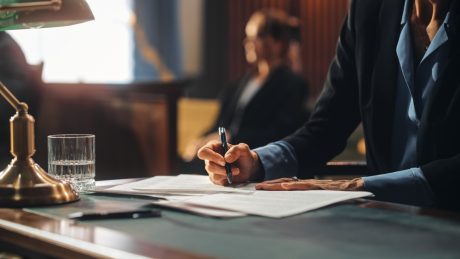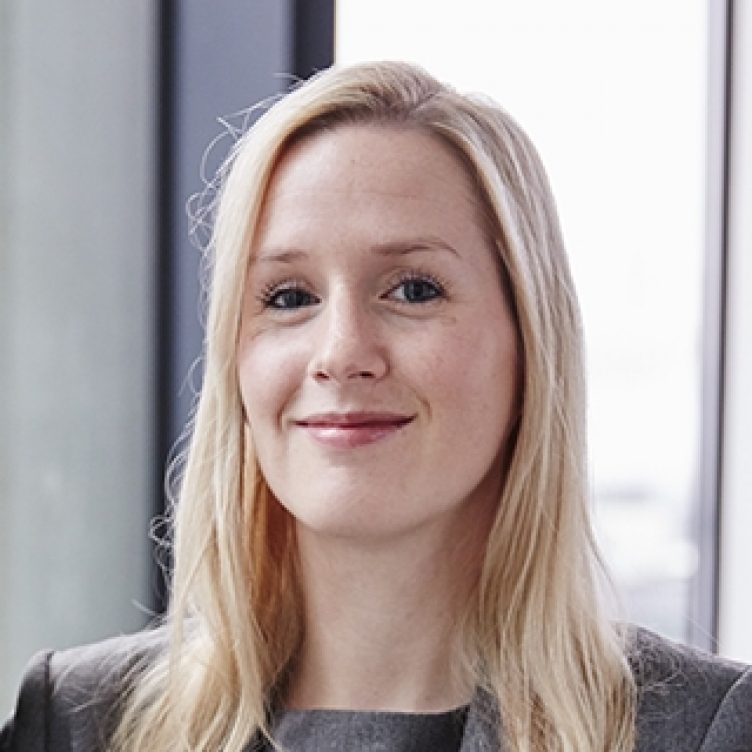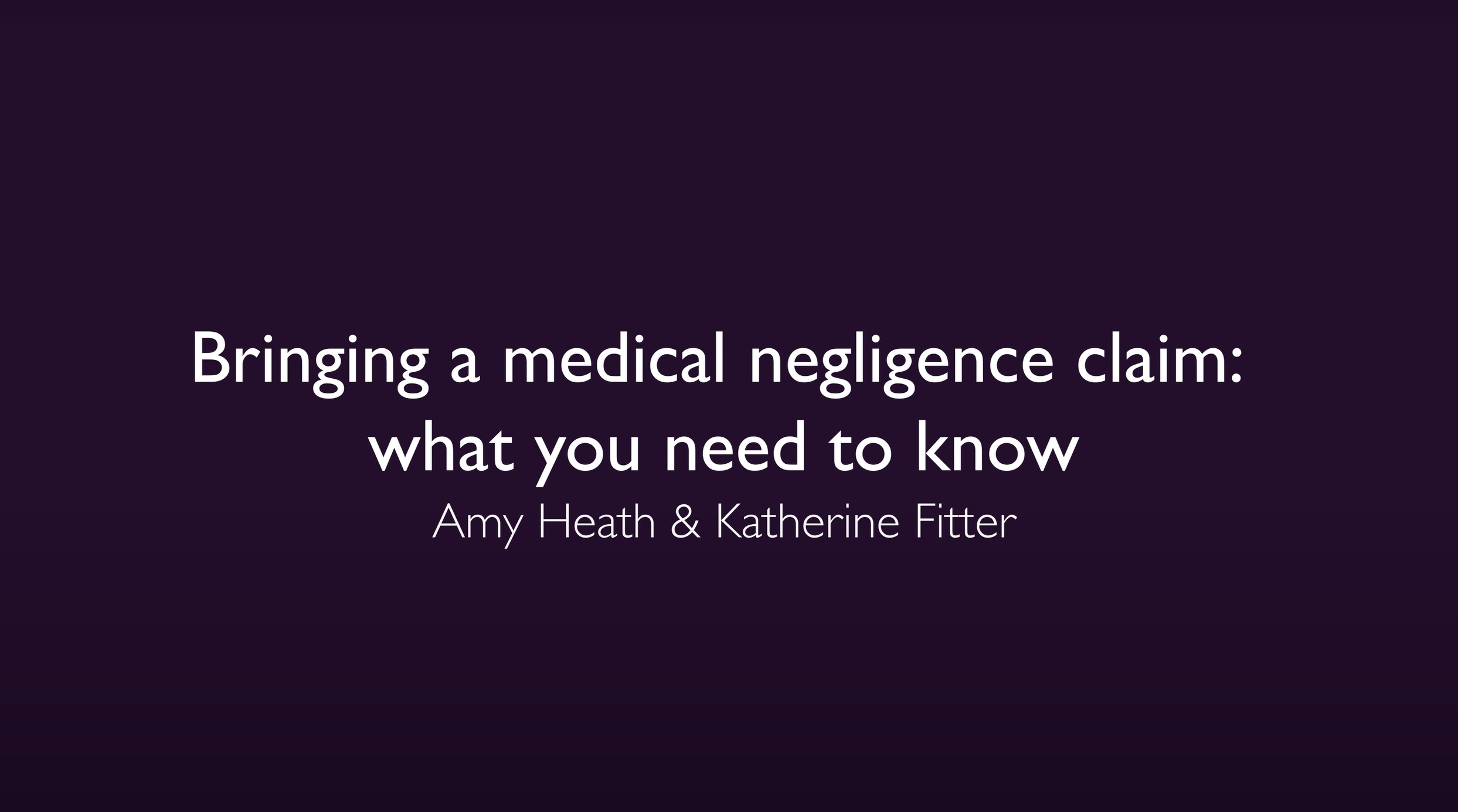The prospect of giving evidence at trial can be unnerving for both new and seasoned experts.
Amy Heath and Nadia Krueger-Young of our Medical Negligence team asked Laura Bochkoltz, physiotherapist and Chris Danbury, consultant intensivist, about their experiences of giving evidence in court.
How long have you been an expert witness for?
Laura: “Twenty-six years. It happened quite randomly. I wanted to reduce the hours I worked as a physiotherapist at the National Spinal Injury centre and my boss asked me whether I wanted to do some expert work. I thought I would give it a go. I did one report, then another and gradually I built my business from there.”
Chris: “Twelve and a half years. My first instruction was in the Court of Protection in NHS Trust v L [2012] EWHC 2741. Initially, I considered myself to be a medicolegal academic, having been awarded an MPhil in Medical Law by Glasgow University in 2005. Shortly afterwards, I took on the role of Visiting Research Fellow in Health Law at the School of Law in the University of Reading. I was then cajoled into accepting instructions by a number of people, both medical and legal.”
How many times have you given evidence at trial?
Chris: “Roughly 18 times in the Court of Protection, 14 times as an expert in the Coroner’s Court and once in the High Court.”
Laura: “Once, last year. I was also working on a case that went to trial about ten years ago, I attended court but was not asked to give evidence on that occasion.”
What issues were you giving evidence about?
Laura: “I was instructed by the claimant solicitor to act as an expert physiotherapist for their client who had sustained an incomplete spinal cord injury. All the experts assessed the claimant, joint discussions took place and statements were produced and disclosed. After the joint discussions, the defendant solicitors disclosed some surveillance video footage. Most of the experts instructed by the defendants then changed their opinion and recommendation without real evidence to support their change of view. The case therefore went to court.
The judges asked what I had found in my assessment and to compare my findings with the surveillance video. I was asked to give my expert opinion from a physiotherapy point of view on how the spinal cord injury had impacted the claimant’s mobility, how their mobility was likely to deteriorate as they aged and what they needed to maximise their function long term.”
Chris: “In the Court of Protection, my evidence was regarding serious medical treatment decisions, helping explain the rationale for and against initiating, continuing or stopping serious medical treatment. When stopping treatment, I was helping the court and family to understand that this would probably result in the patient’s death.
In the Coroner’s Court, my role is helping that court come to a better understanding of the circumstances of the patient’s death. In the High Court, I was helping the court understand how decision making in an intensive care unit is different from the general ward, with a different assessment of risks and benefits of a given treatment.”
How did you prepare, and what, if anything, would you now do differently?
Laura: “I spent a lot of time reading all the documentation related to the case. With a trial you never know exactly what you will be asked, so I felt I had to know the case very well. I cross referenced my evidence to the defendant’s to see if there were discrepancies and to check I had not made any errors. I also spent time looking at the surveillance videos. The case was all-consuming for a while to the run up to the trial.
At the end of each day of the trial, I made a list of what had been discussed that was relevant and what wasn’t. I made sure I was fully focused on the pertinent issues and what I could contribute to those issues.
The only thing I would now do differently is to manage my time better during the preparation. The first day of the trial I did not attend court as I felt I did not know the case well enough and wanted that extra day to carry on preparing and reading. In hindsight, I should have gone to court even if I knew I was not going to give evidence, as this would have given me the opportunity to hear the claimant’s evidence and have an overall picture of how the issues were being presented.”
Chris: “I reread my report at least daily for a week or so before a court appearance. I try to critique it. I ask myself whether my opinion has changed. I’ll go back to what I consider to be the key pages in the medical records and make sure they are in the trial bundle.
I always check the Civil Procedure Rules (CPR)/Court of Protection Rules and the practice directions. I can’t quote them, but I’m alert to an easy question from any of the barristers: ‘When was the last time you read Part 35 of the CPR?’”
Did you receive any useful advice in advance of the trial that you would like to pass on?
Laura: “It was another expert who said the day before I gave evidence, “Laura, you don’t need to know the other expert’s evidence by heart!”. It seems obvious but when you are in the thick of it you lose perspective. Although you don’t need to know everyone else’s, it is essential to know your own evidence inside and out.
The objective of the trial is for you to give information to the judge in your area of expertise so the judge can make their findings. It is not a race, you are allowed time to look at your bundles, think about the question and explain your position.
Take your time and check your facts. If you have any doubts, I would strongly recommend you reassess the claimant before the trial.”
Chris: “Use simple language, be honest, don’t argue, admit ignorance, if your opinion has changed (based on other evidence), admit as much and say why. Most of all, no BS!”
How did you find the experience of giving evidence?
Chris: “Very stressful, and it doesn’t get easier. But it’s a hugely important role.”
Laura: “It was very satisfying! I saw it as a collaborative exercise, where the solicitors and barristers were trying to do the best for their clients, and the experts were trying to stay focussed and impartial to provide the judge with the relevant information so they could form their opinion and make their findings. Because of this, I was able to stay very focused and relatively relaxed.”
What do you think is key to being able to give evidence successfully?
Chris: “Being a good clinician first and foremost; secondly, being able to function under pressure, and finally, being a good communicator.”
Laura: “Firstly, undertake training on how to give evidence. Throughout my career I have attended different courses and workshops to understand the process and what is expected of the experts in court. As an example, during the training they tell you that it is important that you talk to the judge. My worst fear was forgetting to talk to the judge and respond to the barrister who was asking me the question. When I was in the box, it wasn’t as difficult as I thought it would be, and talking to the judge felt obvious.
Secondly, at the point you take the instruction, be sure that you are the right expert for the case. When you do your assessment make sure it is thorough and keep in the back of your mind that you may need to go to court! When you start hearing that the case may go to trial, look at when your assessment was undertaken and think of whether things could have changed. Worst case scenario, you can always re-assess the claimant, which is a much better option than being in the witness box and not being sure of your findings.
Thirdly, talk to your solicitor beforehand. Don’t be concerned for example that they will think of you differently if you don’t have experience of giving evidence at trial and need some guidance. It doesn’t make you a bad expert witness to say you need help for something you haven’t done before; in fact, it is quite the opposite!
Bear in mind that in the courtroom, you are probably the only one who knows your field as well as you do. You are talking to very intelligent people but that doesn’t mean they know your field of expertise and the jargon! I found that giving examples to illustrate my thinking made it easier for the judge to understand what I was talking about.
Finally, and most importantly, it is essential to remember just how crucial it is to stay in your field of expertise and to acknowledge when you are at the limits of that expertise. Your reasoning is based upon your expertise and if you start to offer opinions in other areas, these will not stand up to scrutiny.”
What advice would you give to an expert about to embark on giving evidence at trial?
Laura: “Make sure you set aside the time needed to prepare and consider if you need to be there throughout the trial. It is your reputation at stake, so even if your solicitor doesn’t think it necessary for you to hear other experts giving evidence and while you may not be paid for the extra days, go and listen.
On a practical level, eat, drink and sleep – you don’t know how long it will take. When you are giving your evidence, take your time and remember to breathe and pause. It is not a race.”
Chris: “Listen to the question, speak up to the judge, then finish. Less is usually more and never, never argue with a barrister.”
What tips would you give to a solicitor guiding their experts through the process of giving evidence at trial?
Laura: “Give your expert support in the lead up. A good expert may still be apprehensive about going to trial.
Tell or remind your expert what their job is and remind them that even if the barristers are being assertive or even combative, not to take it personally. The expert’s job is assisting the judge to make their findings. Keeping that in mind helped me to diffuse the heated debates.
Don’t wait for the expert to say they need to reassess the claimant. The expert might be so nervous about the prospect of an intense legal process that they might not think about a reassessment or might not realise it is an option.
Lastly, remember to ask your expert whether they have given evidence beforehand. It is easier for them if the question comes from the solicitor and if they are new, you can help explain the process and address any concerns they may have.”
Chris: “Tell your expert to remember their oral exams they sat for their postgraduate qualifications. Tell the expert that they should prepare for the trial as though it were a ‘long case’ for their final postgraduate exam and that the barristers and judge take the role of the examiners.”
You can find further information regarding our expertise, experience and team on our Clinical Negligence page.
If you require assistance from our team, please contact us.
Subscribe – In order to receive our news straight to your inbox, subscribe here. Our newsletters are sent no more than once a month.







